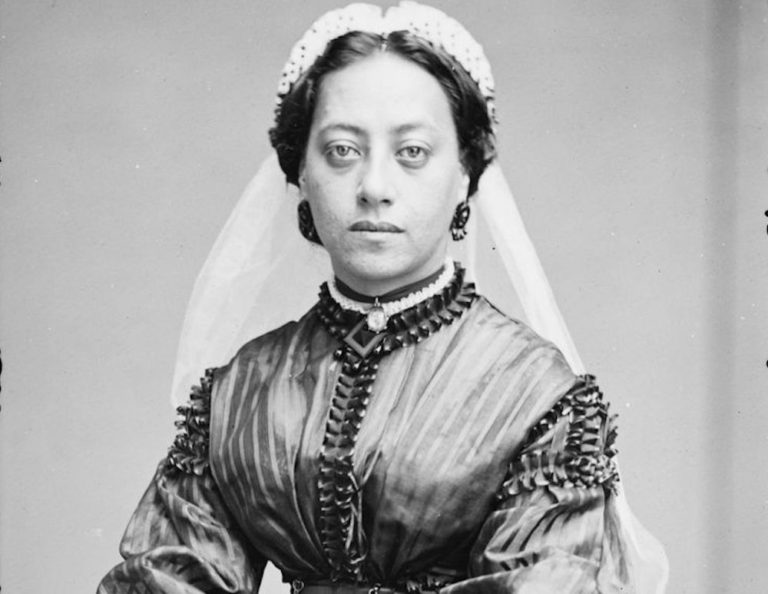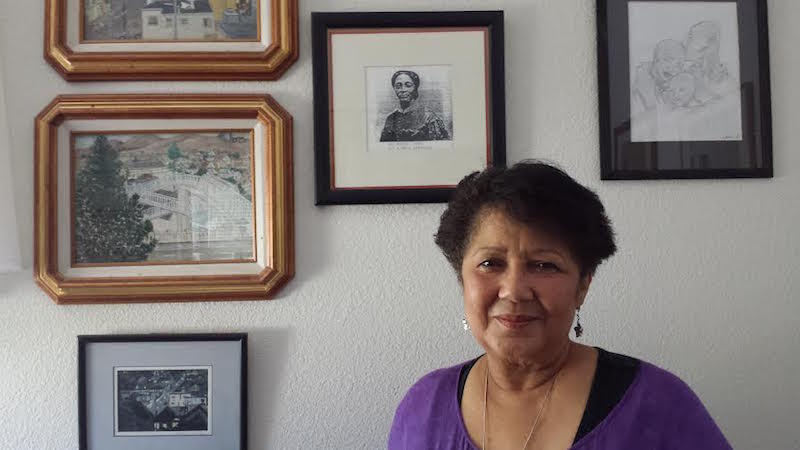The real history behind Mary Ellen Pleasant, San Francisco’s “voodoo queen”
KALW Local Public Radio, 91.7 FM
San Francisco, California
2015-09-09
Olivia Cueva & Liza Veale
In the mid-1800s, boomtown San Francisco was a city of men — only about 15 percent women. While slavery was illegal in California, white men were the ones cashing out on the boom. Mostly.
Then there was Mary Ellen Pleasant. She was one of the richest and most powerful people in the state — and she was a black woman. In fact she was a freedom fighter; her nickname was “Black City Hall.”
Yet today, Pleasant is barely remembered. The story that does get told is a mythologized tale about San Francisco’s so-called “voodoo queen.”
Why did this extraordinary woman fall from the city’s graces, left to haunt its history as the voodoo queen? We start at the last stop on a city tour called the San Francisco Ghost Hunt.
The tour brings you to the corner of Octavia and Bush streets, where Mary Ellen Pleasant’s mansion once stood. Six huge eucalyptus trees tower above the spot. Pleasant planted them herself over a hundred years ago.
Jim Fassbinder guides the tour. He tells a tale that he admits is not quite fact, not quite fiction.
He says Pleasant had power over San Franciscans because she practiced “voodoo.” He says some claim she was responsible for the death of four people, including her longtime business partner. Rumor has it her servant “found Mary Ellen pulling apart the bones of his head and picking out bits of his brain,” says Fassbinder.
As the story goes, she’s haunted this corner ever since the day she died. But the story’s been mangled by history. What really happened?
“It still is a mystery,” says Susheel Bibbs, “Her life is still a mystery.”
Bibbs has been studying Pleasant for over 20 years. She says part of the reason it’s so hard to distinguish fact from fiction is because Pleasant herself never kept her story straight.
“It was ingrained from the very beginning that survival meant that you don’t tell. You just keep secrets,” Bibbs says.
By best accounts, Pleasant was born on a plantation in Georgia. Once she was freed as a young girl, she began falsifying her identity. Slavery was still alive and well, so she needed to protect herself from law enforcement.
“If they decided she was an escaped slave and she had no freedom papers, they could just wrest her off the streets and back into slavery,” Bibbs says.
Her skin was fair enough to pass, so when she docked in San Francisco in 1852, she arrived as a white woman…
Read entire story here. Listen to the story (00:08:37) here.

